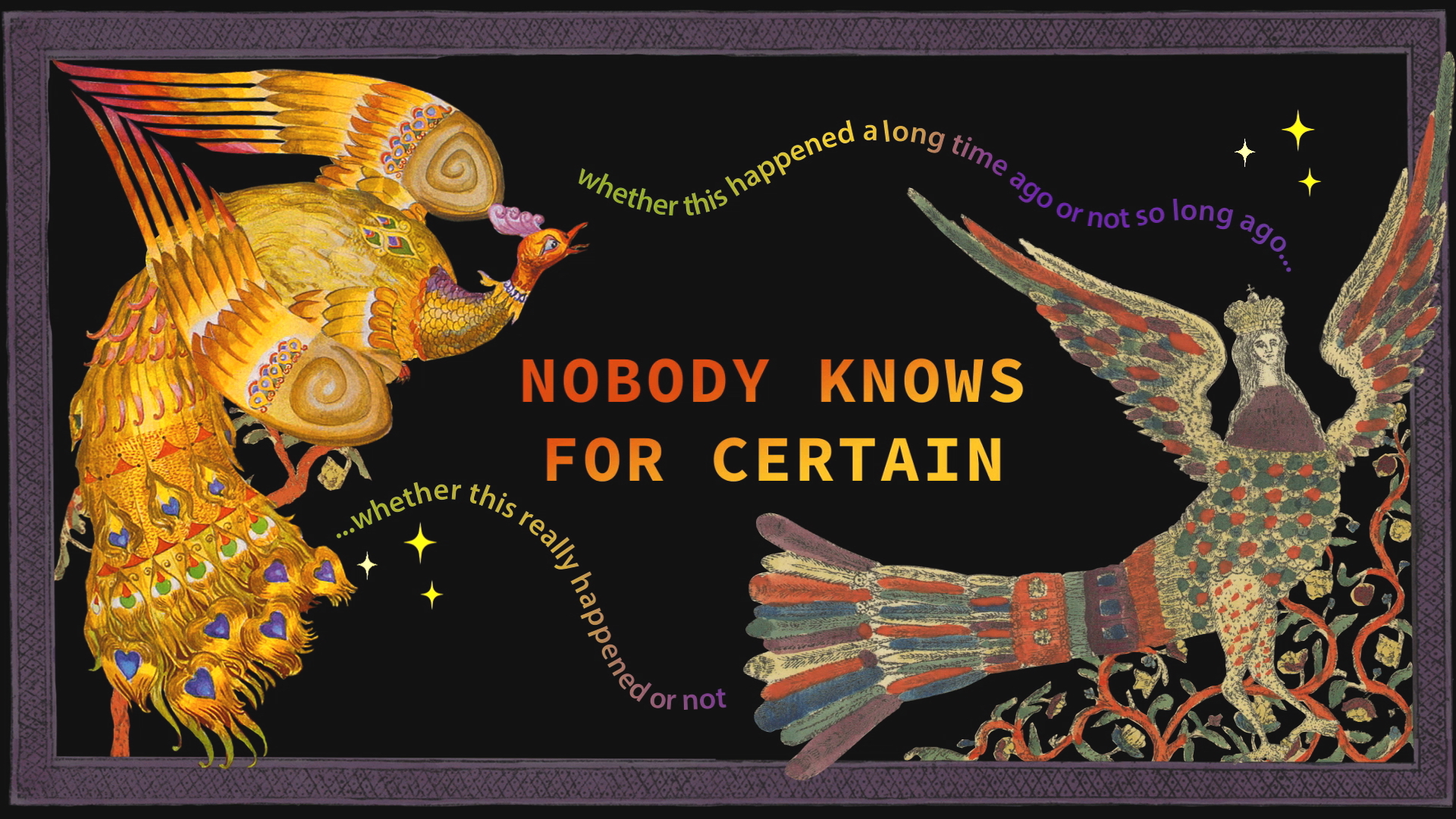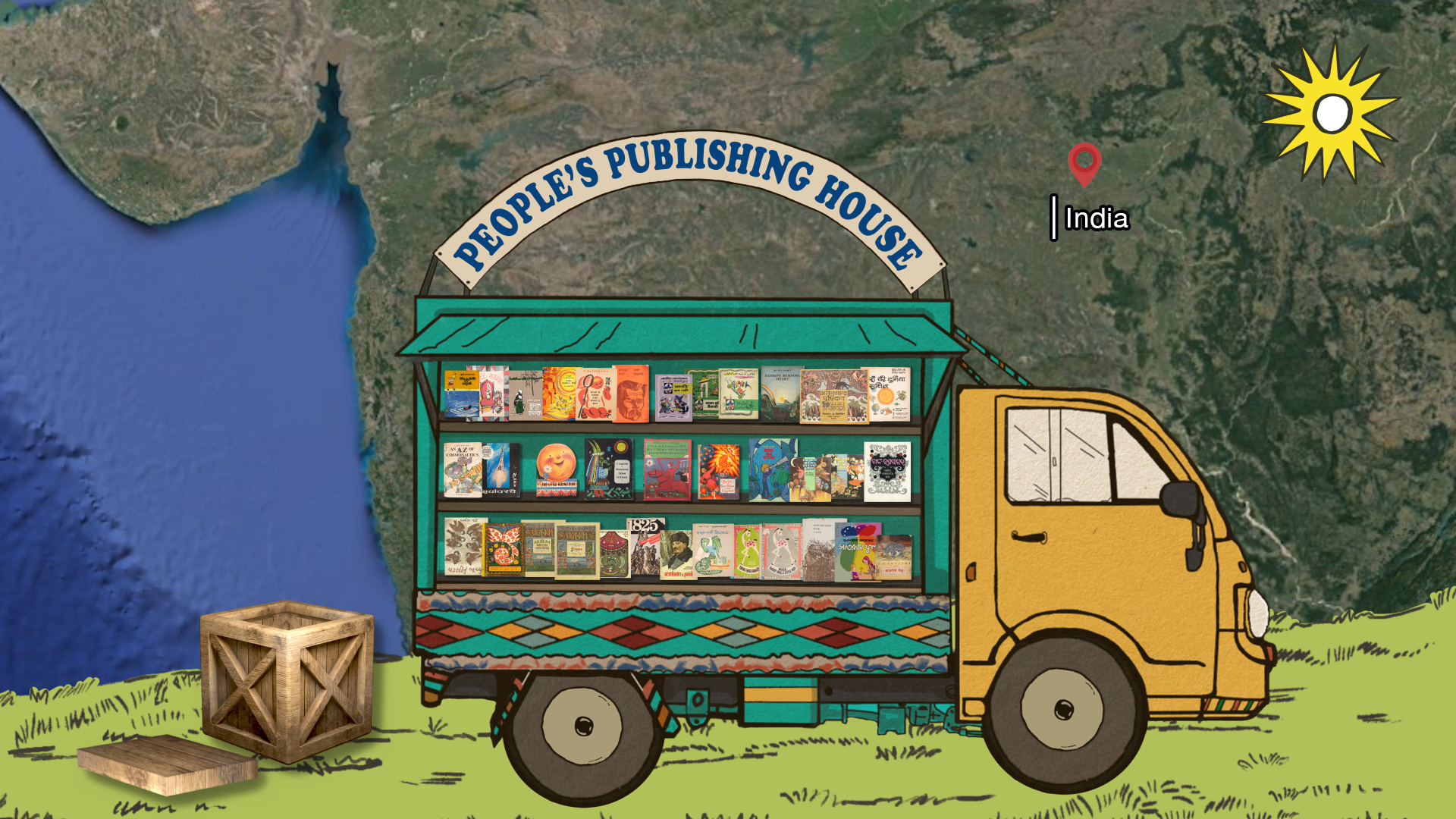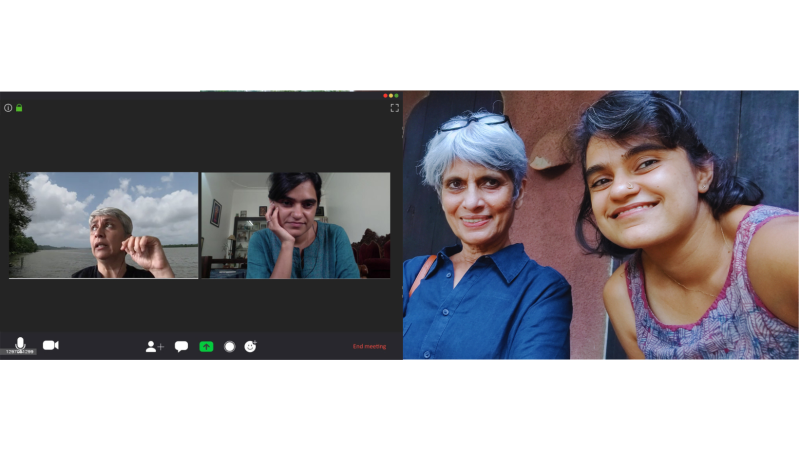Experience of the IAWRT Online Mentorship Program 2021
By Afrah Shafiq
July 10, 2022
Since early 2020, I had been working on a research project as part of a field research fellowship with the Garage Institute of Contemporary Arts in Moscow, around Soviet Children’s Literature that was popular in India during the Cold War years. Apart from researching the contexts within which this cultural exchange took place, I had also been archiving some of these beautifully illustrated children’s books that were in circulation through a sub culture of collectors.
Using the materials and insights from my research, I wanted to make an interactive quest game that both allows the viewer to navigate through and enjoy this wealth of material, but also look at it through a newer lens.




I began to sift through my research material, marking out themes, characters, moments in history, testimonies, aesthetic and political movements and so on that I wanted to include in my work. I also knew I wanted to write in a fiction story that would bring these themes together in a seamless and engaging way. After months of working on this alone, and beginning to feel a bit overwhelmed by the amount of material I had, I managed to get some support and structure through a writing mentorship program called ‘Narrative Shift’ with the graphic novelist Amruta Patil where I wrote the first draft for my script.
However, draft 1 was like any first draft – just a blueprint and a necessary first step. It wasn’t something I could translate into a finished work, as it was too textual and didn’t have any structure and form. It was at this stage that I enrolled for the IAWRT mentorship program where I requested for the mentorship of either one of two members (Alka Hingorani/Nina Sabnani) who I believed would be valuable advisors on a project like this. Amazingly, despite having extremely busy and demanding professional lives, both Alka and Nina agreed to come on board as mentors and we decided to break down the sessions into two phases. The first phase would be with Alka, where she would help me strengthen the script, story and conceptual approach, and the second phase would be with Nina where the focus of the mentorship would be more on the animation and visual treatment.
Once Alka read through my existing first draft, I had a series of one on one sessions with her on zoom, between which she also reviewed a newer version of the script. My sessions with her were simply superb! Her knowledge of the different traditions of storytelling, her analogies from films to oral forms and her responses to my various half-baked ideas really helped me develop links and flesh out what my story would look and feel like. At the end of these sessions I felt ready to start translating my script into a tangible form.
At this stage I worked on a visual road map for the story ahead and a few directions of treatment for the animation and design. Luckily, Nina happened to be visiting my city at the time and we managed to have a long marathon session in person where I could take her through the script and the story material. Nina nudged me to think about why I was calling my work a “game” and what that meant, encouraged me use the strength of the archival material I had gathered, helped me find the most perfect animator to work along with me on the project as well as warned me about the unrealistic production plan I had drawn out.
I am now exactly half way done with my production, I am enjoying the way it is coming together and I know it would certainly not look and flow the way it does without the mentorship of both Alka and Nina so I am very very grateful for having the chance to learn from them. #
Afrah Shafiq is a member of the IAWRT India Chapter








